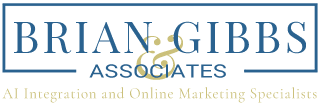Creating Killer Content for Your Local Business
 Why Content Marketing is Essential for Small Businesses
Why Content Marketing is Essential for Small Businesses
Content marketing is a vital aspect of every small business’s marketing strategy. It’s an effective way to create brand awareness, engage with your target audience, and establish yourself as an industry expert. More importantly, it’s an affordable method of marketing for small businesses, allowing you to compete with bigger brands without breaking the bank.
By creating killer content for your local business, you can attract potential customers, retain existing ones, and build a loyal following that will lead to long-term success. In this article, we’ll delve into the world of content marketing and explore practical strategies for creating engaging, relevant, and valuable content that resonates with your audience.
Understanding Your Target Audience and Pain Points
Knowing your target audience is crucial when it comes to creating content that appeals to them. You need to understand their needs, preferences, and pain points to create content that effectively addresses their problems and provides solutions. This will not only showcase your expertise but also build trust and credibility with your audience.
Start by creating buyer personas, which are fictional representations of your ideal customers. Gather information about their demographics, interests, and challenges, and use these insights to tailor your content to their needs. By addressing their pain points, you’ll demonstrate empathy and showcase your understanding of their struggles, making your content more relatable and effective.
 Developing a Winning Content Marketing Strategy
Developing a Winning Content Marketing Strategy
Having a well-thought-out content marketing strategy in place is essential to ensure your efforts are focused and aligned with your business goals. Start by setting clear objectives, such as increasing website traffic, generating leads, or boosting brand awareness. Then, outline the tactics you’ll use to achieve these goals, such as blogging, email marketing, or social media marketing.
Next, create a content calendar to plan and schedule your content in advance. This will help you stay organized, maintain a consistent posting schedule, and ensure your content is well-rounded and covers various topics relevant to your audience. Don’t forget to include a mix of content formats, such as blog posts, videos, infographics, and case studies, to cater to different preferences and learning styles.
Generating Content Ideas and Creating Engaging Content
Coming up with fresh content ideas can be challenging, but it’s essential to keep your audience engaged and interested. Stay current with industry trends, listen to your audience’s feedback, and use keyword research tools to discover popular topics and questions related to your niche. Additionally, analyze your competitors’ content to identify gaps and opportunities for creating unique, value-added content that sets you apart.
When creating your content, focus on providing actionable tips, insights, and solutions that address your audience’s needs. Make your content easily digestible by using short paragraphs, bullet points, and subheadings. Don’t forget to add compelling visuals and multimedia elements to enhance your content and make it more engaging.
Optimizing Your Content for SEO and Local Search
SEO is crucial for ensuring your content is easily discoverable by your target audience. Optimize your content for relevant keywords, but avoid keyword stuffing – maintain a natural writing style and aim for a keyword density of 2% to 3%. Include your target keywords in your title tags, meta descriptions, headings, and URL structures to improve your chances of ranking higher in search engine results.
For local businesses, it’s essential to optimize your content for local search as well. Make sure your business name, address, and phone number (NAP) are consistent across all online platforms, including your website, social media profiles, and local business directories. Additionally, encourage customers to leave reviews on your Google Business Profile and other review platforms to enhance your online reputation and boost your local search rankings.
 Maximizing Your Reach through Social Media and Email Marketing
Maximizing Your Reach through Social Media and Email Marketing
Social media is an indispensable tool for promoting your content and increasing its reach. Share your content on relevant social media platforms to engage with your audience, attract new followers, and drive traffic back to your website. Tailor your content for each platform using eye-catching visuals, catchy headlines, and platform-specific features, such as hashtags and mentions.
Email marketing is another effective channel for distributing your content and nurturing leads. Build a subscriber list by offering valuable resources, such as e-books, webinars, or discounts, in exchange for your audience’s email addresses. Regularly send them informative, engaging, and personalized content that nurtures their interest and keeps your brand top of mind.
Measure Your Content Marketing Success
It’s essential to track and analyze your content marketing efforts to gauge their effectiveness and identify areas for improvement. Monitor key performance indicators (KPIs), such as website traffic, social media engagement, email open and click-through rates, and conversion rates, to evaluate your content’s impact on your marketing goals.
Use this data to refine your content marketing strategy, optimize your content for better results, and allocate your resources more effectively. Remember, content marketing is an ongoing process that requires continuous improvement and adaptation to stay relevant and effective.
Conclusion
 Creating killer content for your local business is an essential component of a successful digital marketing strategy. By understanding your audience, developing a solid content marketing plan, generating engaging content, and maximizing its reach through SEO, social media, and email marketing, you’ll position your small business for long-term success and growth. Stay focused, be consistent, and always strive to provide value to your audience, and you’ll soon reap the rewards of your content marketing efforts.
Creating killer content for your local business is an essential component of a successful digital marketing strategy. By understanding your audience, developing a solid content marketing plan, generating engaging content, and maximizing its reach through SEO, social media, and email marketing, you’ll position your small business for long-term success and growth. Stay focused, be consistent, and always strive to provide value to your audience, and you’ll soon reap the rewards of your content marketing efforts.
FAQs
- How often should I publish content for my local business?
There is no one-size-fits-all answer to this question, as the ideal publishing frequency depends on your industry, audience, and resources. However, consistency is key – aim to publish high-quality content regularly, whether that’s weekly, bi-weekly, or monthly. - What types of content should I create for my small business?
Diversify your content mix to cater to different preferences and learning styles. Some popular content formats include blog posts, videos, infographics, case studies, webinars, and podcasts. - How can I encourage user-generated content (UGC)?
UGC can significantly boost your content marketing efforts. Encourage customers to share their experiences, photos, or videos on social media by running contests, offering incentives, or simply asking for their feedback. - What tools can I use to streamline my content marketing efforts?
There are numerous tools available for content planning, creation, scheduling, and analysis. Some popular options include Trello, Google Analytics, Hootsuite, and Mailchimp. - Should I outsource my content marketing or handle it in-house?
Deciding whether to outsource your content marketing or manage it in-house depends on your business’s needs, resources, and expertise. If you have the time, skills, and resources to create high-quality content consistently, you may choose to handle it in-house. However, outsourcing to a professional content marketing agency or freelancer can save you time and ensure your content is expertly crafted and optimized for SEO.
References
- Content Marketing Institute – Developing a Content Marketing Strategy
- Search Engine Journal – The Small Business Owner’s Guide to SEO
- Social Media Examiner – How to Create a Social Media Content Calendar
- HubSpot – Local SEO: The Definitive Guide to Improve Your Local Search Rankings
- Forbes – Finding Brand Success In The Digital World


 Developing a Winning Content Marketing Strategy
Developing a Winning Content Marketing Strategy Maximizing Your Reach through Social Media and Email Marketing
Maximizing Your Reach through Social Media and Email Marketing